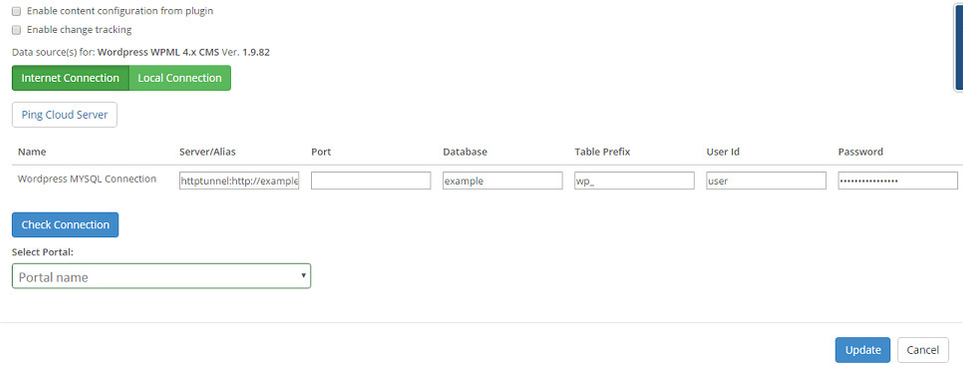MySQL HTTP Tunnel Connection
General Information
If you have a remote website and you need to access website database from iLangL cloud, but access to it through the port of the database server is forbidden and only access through HTTP port 80 is allowed, you can use MySQL HTTP tunnel.
You need to deploy tunnel.php script, which is included to the provider package, on the web server. It will provide access to the database server with the following use of HTTP tunneling. The script must be available through the HTTP protocol. You can verify if it is accessible with web browser. Here you can download tunnel.php file http://ilangl.com/downloads/tunnel.zip. Preferred place for this script is a website root folder. The only server requirement is PHP 5 support.
How to Check if File Was Deployed and Works Correctly?
To check if your file was deployed and now works correctly, you must enter url to a browser where tunnel.php file is located. For example, http://<your websute ur>/tunnel.php. In case of success, you will get the following response:
Devart HttpTunnel v1.73 Tunnel script is installed correctly. You can establish connections through the HTTP tunnel. Loging is enabled. Log files are located in the tunnel_files folder, which, in its turn, is located in the temporary folder of the operating system: /tmp/tunnel_files/httptunnel_server.log
How to Set up Connection via HTTP Tunnel?
To establish connection between your website and iLangL cloud using MySQL HTTP Tunnel, you must follow the instructions for Internet Connection except for a server name part.
For a server name, please use the following settings: httptunnel:http://<your website url>/tunnel.php, IP address
where httptunnel - protocol
http://<your website url>/tunnel.php - Url of the tunneling PHP script.
IP address - MySql server IP address
For example, if the script is in the server root, the url can be the following: http://localhost/tunnel.php. If MySQL database is located on local environment, you can use IP 127.0.0.1.
As a result, you should get the following result: httptunnel:http://localhost/tunnel.php,127.0.0.1

